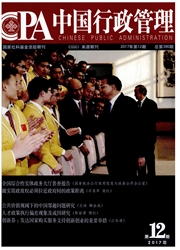

 中文摘要:
中文摘要:
明代巡按御史机制具有重要的反腐败功能,巡按御史职责与职级、选拔程序与方法、内部纠劾与权力制衡等为其实现该功能提供了运行要件,其成效受到巡按御史任职者能力、品德等因素影响。基于委托代理制度分析框架的进一步研究发现,效用函数冲突、难以消除道德风险、“人治”特征无从制衡权力等内在缺陷是明代巡按御史机制反腐败功能难以为继的深层原因。这一宝贵历史教训为现代反腐败实践提供了重要启示。
 英文摘要:
英文摘要:
The Patrol-Inspection Mechanism of Ming Dynasty has an important anticorruption function. The mechanism designs such as duties and ranks, the selection of procedures and methods, internal supervision and balance of power, methods of performing duties, etc. provided necessary operation elements for the anticorruption function. Nevertheless, the anticorruption effectiveness of the mechanism is deeply influenced by the qualities and moral characters of Patrol Inspectors. The further research based on Principal-Agent Systematic Analysis Framework proves that it is unsustainable for Patrol-Inspection Mechanism to fight against corruption because of several inherent flaws including unclear object function, high supervision cost and rule by men. This valuable historical lesson is worth modern anticorruption practices all over the world to learn.
 同期刊论文项目
同期刊论文项目
 同项目期刊论文
同项目期刊论文
 期刊信息
期刊信息
